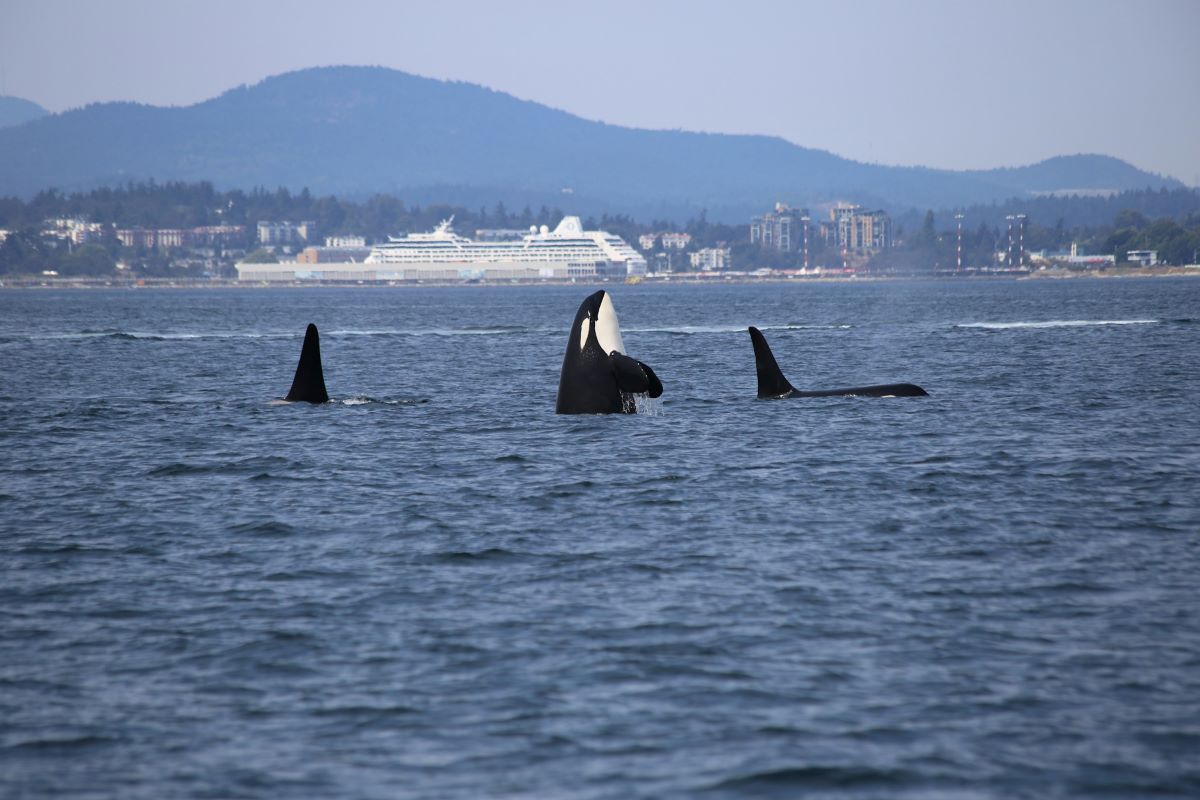
In a landmark case, a Canadian film company and its drone pilot have been slapped with a $22,500 fine for operating a drone too close to a pod of Northern Resident Killer Whales (NRKWs) off Vancouver Island. This is the first time a fine was issued in Canada for the unlawful use of a drone to capture killer whale footage.
The case stems from an investigation by fishery officers from Fisheries and Oceans Canada’s (DFO) Whale Protection Unit, Fraser Coastal Detachment.
In 2020, River Road Films, along with its sister company based in the United Kingdom, applied for a permit to film species listed under the Species at Risk Act (SARA), including killer whales, for a documentary project. However, their application was not approved.
Undeterred, the film crew continued their efforts and, in August 2021, were found using drones and underwater video equipment to capture footage of NRKWs at a well-known rubbing beach on Vancouver Island.
Last month, River Road Films finally pleaded guilty to operating a drone near the NRKWs, violating Canadian regulations that aim to protect these animals from disturbances. The company was fined $18,000 and has been prohibited from using or distributing the drone footage captured during the incident. Meanwhile, Mathew Hood, the drone operator responsible for piloting the aircraft, was ordered to pay a $4,500 fine.
The Northern Resident Killer Whales, a group of orcas known for their unique “beach rubbing” behavior, are a critical species to the region. This activity, where the whales brush against smooth pebbles in shallow waters, is believed to be essential for their physical well-being and social bonding. However, the presence of drones, which are categorized as aircraft under Canadian regulations, can disrupt these behaviors, causing stress and potential harm to the animals.
Under Canadian law, it is illegal to approach marine mammals, including whales, with a drone at an altitude below 1,000 feet (about 304 meters) or within a half nautical mile (approx. 926 meters). These restrictions are enforced under the Marine Mammal Regulations, which are designed to minimize human interference with vulnerable species. Violations of these regulations can result in significant fines, as evidenced by this recent case.
DFO’s Whale Protection Unit, which led the investigation into River Road Films, works closely with several enforcement partners, including the Canadian Coast Guard, Transport Canada, Parks Canada, and the Royal Canadian Mounted Police, to uphold these regulations and protect marine life.
Read more: Make your voice heard to prevent DJI ban, stresses drone maker
FTC: We use income earning auto affiliate links. More.





Comments